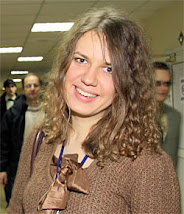5 September 2010, Kuala Lumpur – Learning to avoid tactical blunders during a tournament is an essential skill for the chess player. The club or weekend player is particularly annoyed by the challenge of avoiding tactical blunders. A player rushing to a club event after work or scrambling to compete in a weekend tournament may require some extra precautions to settle into a comfortable rhythm. What steps can be taken to prevent simple oversights during a game? Many strong players prefer some combination of the following steps:
- Mentally decide upon a move;
- Imagine that you have played the move on the board;
- Try to look at the position solely from the opponent’s perspective – what move would I play next if I were the opponent?
- Write down the move;
- Play the move on the board.
The most controversial step is to write down the move before playing it – many players diligently follow this approach although it may technically be against the rules. One obvious drawback is that it gives your opponent a preview of the move. There is no definitive answer to this question and the player should experiment and select the technique which works best for his particular temperament. If you find yourself making a lot of simple oversights, it may be time to alter your established routine.
Keep your tactical eye sharp by continually working on this part of your game. Many chess puzzles, problems and endgame studies can be solved directly from a book while riding to work on a train or waiting in a doctor’s office. One recommended book is “Chess Tactics for the tournament player” by CM Collin Madhavan, which I use for personal training. Another one is “The Complete Chess Workout – Train your brain with 1200 puzzles” by Richard Palliser, Everyman Chess could be useful for the advanced player. Interactive software programs like CT-Art 3.0 or 4.0 can be used to improve your tactical insight. Another useful resource is the internet where one can train using chess puzzles at www.chesstempo.com. No matter which you choose, remember this – Tactical skill can be improved with practice.

.JPG)





















No comments:
Post a Comment